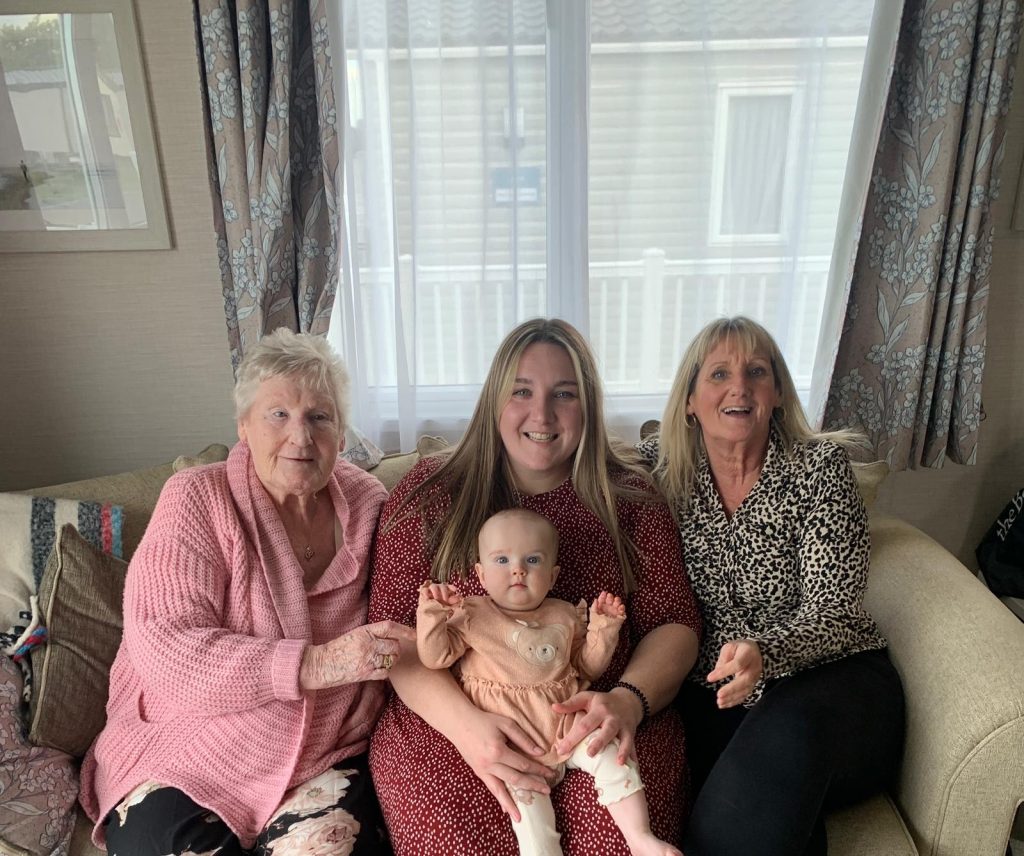King’s specialist cares for four generations of one family
25 November 2024 - Pioneering surgery helps baby Isabella thrive, over 30 years after the same specialist cared for her great grandmother

In the late 1970s, an expert in fetal medicine carried out an amniocentesis test at King’s College Hospital on Rose Bill to check if her unborn baby might have Down’s syndrome.
Professor Kypros Nicolaides, who went on to become Professor of fetal medicine at King’s College Hospital, carried out the test, which was a ground-breaking innovation in fetal medicine at the time. Rose’s baby, named Amanda, was born with no medical problems, but 18 years later, Amanda’s older sister, Michelle Lockyer, and Professor Kypros Nicolaides met for the first time when Michelle was pregnant with her second child, Jake.
Rhea Eldridge explained: “My mum, Michelle, had some issues in her pregnancy with my brother, including bleeding and low amniotic fluid, so she was sent for a scan with Professor Kypros Nicolaides at King’s. He reassured her that Jake was healthy, and he was born with no complications.”
When Rhea, 32, became pregnant with her daughter, she received devastating news at her 20 week scan. Her baby was diagnosed with Congenital Diaphragmatic Hernia (CDH), a rare condition affecting babies before birth. Rhea said: “I will never forget the moment I found out our little baby had a hole in her diaphragm, and had a 15% chance of survival. Professor Kypros Nicolaides came into my family’s life again, this time offering to perform in-utero surgery to help my daughter.”
This incredibly precise surgery is performed while the baby is still in the womb at around 24 weeks, and is only offered in the most extreme cases of CDH where the baby’s chance of survival (without the surgery) is very low. The procedure involved inserting a miniature latex balloon through the wall of Rhea’s uterus, down through her baby’s mouth and positioning it delicately in her windpipe before inflating it. This helps the baby’s lungs to expand and develop.
Rhea added: “Professor Kypros Nicolaides was very clear with us about the risks involved with in-utero surgery, but it was our baby’s best chance of survival. It was surreal lying on the operating table, but I knew my little girl and I couldn’t have been in safer hands. The procedure was a success, and baby Isabella was born a year ago. She’s doing so well, she is absolutely thriving and we’re so proud of her.
“Professor Kypros Nicolaides has been here for my nan, my mother and now me and little Isabella. He has completely transformed our family, and we are so grateful to him.”
Professor Kypros Nicolaides said: “Throughout my career, I have worked to make sure we bring forward pioneering advancements in care so that families have the best possible treatment for their babies. The amniocentesis test I helped give Rose and her baby was considered ground-breaking at the time. it is amazing to see how far we have come and how much more we can do to care for Rhea’s generation.
“It is a privilege to have been able to care for Rose, Michelle, Rhea and little Isabella, and to have played a part in their wonderful family. I am delighted to hear that baby Isabella is doing so well.”
